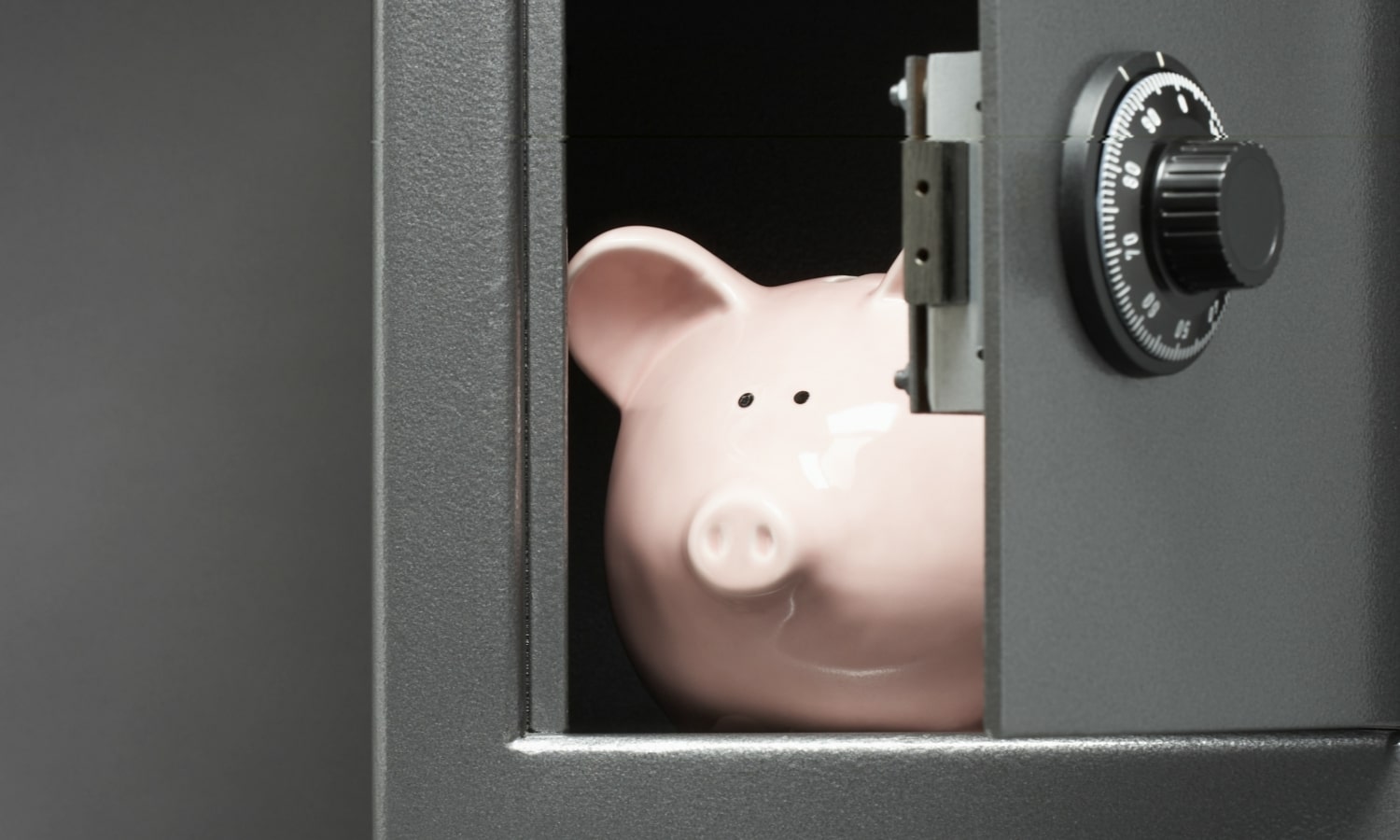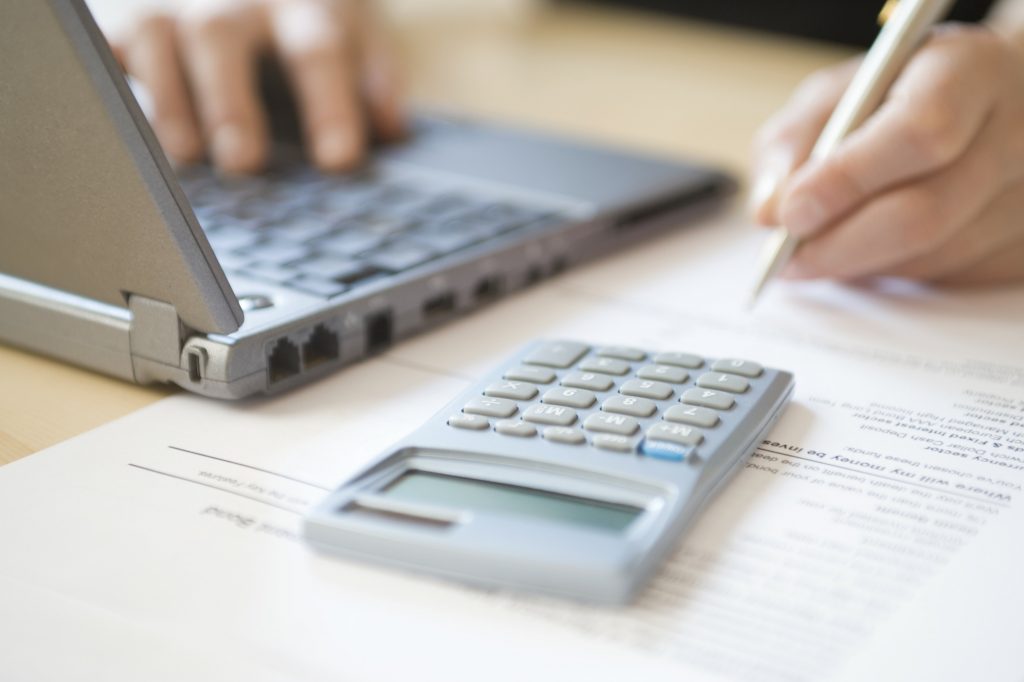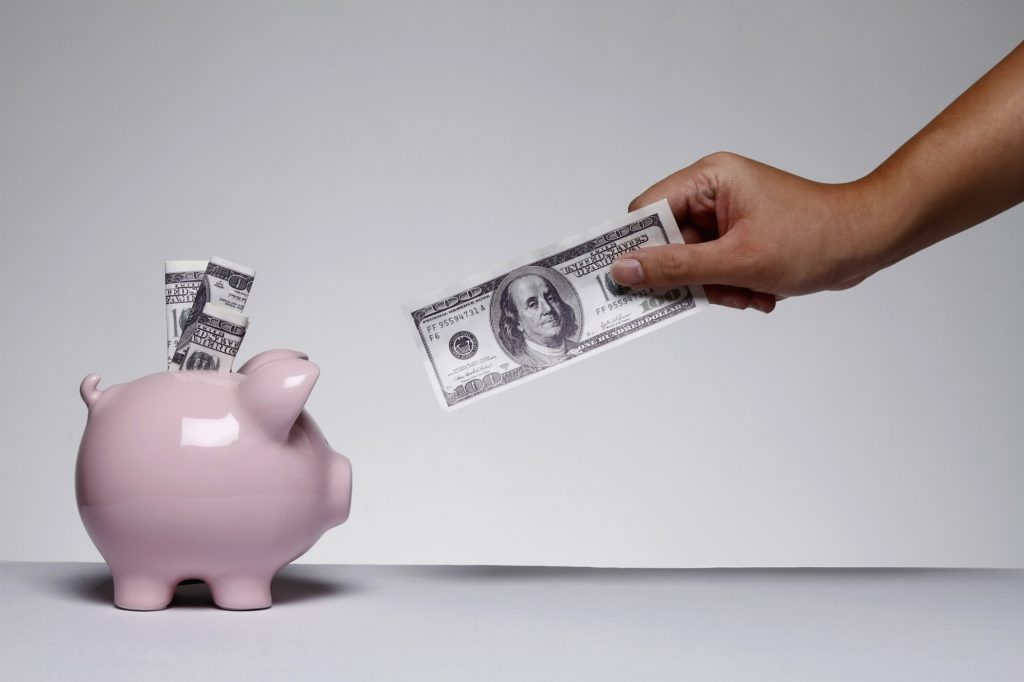
Money Management Tips
Tips and Tools for Building a Better Emergency Fund
Life can be unexpected. As a result it’s important to prepare yourself — and your finances — for the worst case scenario. In the latter case, one of the best ways to ensure that an unforeseen expense, job loss, or other setback doesn’t become exacerbated is to have an emergency fund on hand.
That’s probably advice you’ve been told before. However you might not have heard about some of the different tools you can use to calculate, grow, and get the most out of your emergency savings. Let’s take a closer look at what you need to know about building a better emergency fund.
How to Calculate Your Emergency Fund
What is an emergency fund?

Before we get into the specifics of setting and building your emergency fund, let’s talk about what an emergency fund even is. Simply put, an emergency fund (or an emergency savings fund) is money you set aside for the major unplanned expenses and financial hits life might throw at you. This could mean losing a job, requiring expensive medical care, or needing to unexpectedly relocate.
With an emergency fund in place, the hope is that you’ll be able to better weather these events and make it to the other side without further financial impacts such as credit card debt, bankruptcy, or worse.
Totaling your expenses
In order to set a target amount for your emergency fund, you’ll need to figure out how much you spend in a given month. More specifically you’ll want to look mostly at your “must-pay” bills that you would need to cover regardless of your financial situation. This would include things like rent/mortgage payments, car payments, insurance premiums, groceries, gas, etc. For non-monthly recurring expenses or fluctuating bills like utilities, you can either average these costs across 12 months or include the largest possible number in your calculations.
To dive into how much you spend per month, it’s recommended that you review the past three months (or more) of your credit card or banking statements. If you use multiple accounts, you can either go through each individually or utilize an aggregator — like some of those we’ll discuss in a moment. Finally it’s also a good idea to keep a list of subscriptions, recurring fees, and other places you’d immediately need to cancel or cut back on were the worst to happen.
How many months of expenses do you need?
Once you arrive at your monthly spending amount, you’ll want to determine how many months worth of expenses you should keep on hand. Typically it is advised that an emergency fund contains enough money to cover you for three to six months, although this could depend on your personal situation. For example a single person might not feel the need to keep as much cash on hand as a family would. Similarly flexibility and risk tolerance will also be major factors in how conservative you make your emergency fund.
Budgeting Tools
Mint
Mint is a popular budgeting tool that allows you to link your various bank accounts to view recent transactions, balances, and more. Because the service keeps track of your spending across a number of categories, it could prove to be a great place to start when you’re calculating your monthly living expenses. Of course its budgeting capabilities can also come in handy as you start setting aside money to build your emergency fund (but more on that in a bit).
Personal Capital
Similar to Mint, Personal Capital also allows users to connect multiple financial accounts in order to monitor them all in one place. Although, on the whole, Personal Capital is more investment-focused than Mint, it still offers budgeting tools and spending insight that can help you craft your emergency fund plan. In fact, you may even be greeted by a message congratulating you on having enough cash on hand once you meet some popular emergency fund parameters.
How to Build Up Your Emergency Fund
Automated transfers

Perhaps the best way to help you start building up your emergency savings is to leverage automated transfers. By arranging to have money moved without you having to do it manually, not only will you reduce the risk of forgetting to do it but will also help instill the habit. In addition to the many major banks that offer some sort of automated transfers, we’ll discuss some other useful tools below.
Set aside “found money”
As you continue to work toward reaching your emergency savings goal, another way to speed up the process is to set aside “found money.” What do I mean by that? This could be bonuses you receive from work, cash gifts from friends and family, or even something like a tax refund. It could also be expanded to include cash back you earn from apps like Dosh and Rakuten (formerly Ebates) or credit card rewards. While it may feel like a sacrifice to put your “fun money” into your emergency fund, the peace of mind you’ll get once you’ve hit your target number will be well worth it.
Savings Tools
Long Game
If you’re looking for a service that will literally make saving fun, Long Game might just be for you. This clever app rewards users for making regular savings contributions by granting them coins they can use to play games and potentially win money.
That might sound like gambling but Long Game only allows you to earn coins, not buy them and your savings are never at risk in any of these games of chance. As a result, this unconventional but surprisingly addictive app could prove effective for helping you build up your fund. This app recently relaunched and is currently offered through partnerships with NBKC and Varo Bank.
Digit
Unlike the above tools where users select how much they’d like to save each week/month, Digit‘s claim to fame is that it leverages artificial intelligence and algorithms to help users save. Not only will Digit assess your spending and automatically make transfers to savings for you but will also allow you to set additional savings goals and stay on top of your balances via SMS alerts.
The only downside to Digit is that the service costs $5 a month after a free 30 days trial. Still, if it helps you reach your emergency fund goal, this fee may just be worth it.
Astra
Another interesting option for automating your savings is an app called Astra. With Astra, you’ll be able to create a number of custom routines that will automatically transfer funds from one linked account to another. For example, you can set-up a Savings Challenge that will transfer $1 on week one, $2 on week two, etc.
Elsewhere, other useful options include Sweep Transfers that move any excess funds over a certain threshold to a designated account on a set basis. Of course, you can also create more simplistic recurring transfers as well. Overall, Astra is a great option if you want to add automation to your existing accounts and is definitely worth exploring.
Given the importance of having an emergency fund, there’s a lot of discussion among financial experts about whether building your fund should be your top money priority. However, there’s no easy answer to this question. Instead, it will likely depend on your specific situation as well as your financial goals.
For example, if you have high credit card debt, it may make more sense to focus on paying down your balance than to set money aside for your emergency fund. Another common conundrum is that workers may wish to prioritize their retirement savings, leading them to take longer to grow their savings. Ultimately, it’s up to you to decide what strategies and priorities make sense for you. In the first scenario, perhaps you focus on your highest debt but set aside $20 a week for your emergency fund. As for the retirement investment question, you may decide to max out your employer 401(k) contribution matching but then direct other funds to savings.
Instead of worrying about where on your priorities chart an emergency fund should fall, set a goal for how much you want to have saved by certain dates and work from there.
Although the terms “emergency fund” and “rainy day fund” may be used interchangeably by some, there can actually be a difference. Typically, a rainy day fund is money you set aside for smaller unexpected expenses whereas an emergency fund is for larger life changes and major expenses. As a result, you may end up tapping and refilling a rainy day fund multiple times a year but would (hopefully) not need to touch an emergency fund for several years.
As we’ve discussed, it’s typically advised that an emergency fund consist of three to six month’s worth of expenses. In contrast, a solid rainy day fund may hold a few hundred dollars to a thousand dollars. By having both of these funds in place, you’ll help protect yourself from a greater variety of financial challenges and provide yourself with more money security overall.
Contrary to what movies and television may have you believe the answer is not under your mattress. Instead, it’s often best to keep your emergency fund in an account that’s easily accessible, safe, and that ideally allows your savings to grow. Of course, finding an option with all three of these characteristics in a single option can be difficult. Because of this, you may even wish to break your emergency fund into chunks or tiers in order to maximize the advantages of each account (e.g. one month of expenses in a savings account, two more months in a CD, etc.).
On that note, let’s take a closer look at a few popular emergency fund account options along with the pros and cons of each.
Making the Most of Your Emergency Fund
High-yield savings accounts

While most consumers likely have a savings account with one of the major banks, oftentimes these options pay very little interest to account holders. That’s why you may be better off moving your emergency money to a high-yield savings account like those offered by some online-only banks. In many cases these accounts will allow you to earn 100 or even 200 times the amount of interest you’d get from a traditional institution, enabling you to grow your funds without having to do a thing.
If possible, you may also want to aim for a bank that offers high-yield savings as well as a checking account. That way, you can quickly move money from your emergency fund to your checking for easy access as needed. Alternatively, as we’ll discuss below, there are now FinTech “hybrid” accounts that include functions of both checking and savings accounts.
Certificate of Deposits (CDs)
Another option for making some money with your emergency fund in waiting is a certificate of deposit — commonly known as a CD. Typically offered with terms from three months to five years, CDs can best be described as a timed safe that you place your money into until it opens up after the term period is up. Depending on the institution, the term length, and other factors, the interest you earn from CDs could be even greater than certain high-yield savings accounts.
On the other hand, one downside to CDs is that there may be complications should you need to pull your money out early. Oftentimes this means returning a portion of the interest you earned but other penalties and fees may also apply. For that reason, be sure to check your issuer’s policies before placing all of your emergency funds in a CD.
Money Market accounts
While money markets accounts (not to be confused with money market funds) may not be the most well-known type of account, they can actually be quite useful when it comes to emergency funds. That’s because many money market accounts feature the accessibility of a checking account while paying interest rates akin to a savings account. Depending on the bank, your money market account may include a debit card or the ability to write checks — something that could definitely come in handy should you need to pay for unexpected expenses. Plus, as I noted, you’ll typically earn an APY in the neighborhood of what a savings account would so that your parked money earns you money.
One potential downside with money market accounts is that many do require a higher initial deposit amount than most savings or checking accounts — although this will of course vary by bank. Therefore, this option may not be within your reach right away but may be something to consider as your emergency fund grows.
Where to invest your emergency fund?
Lastly, it’s worth noting that investing your earmarked emergency funds is not advisable. That’s because, due to the nature of the markets, there’s a chance that your investments could lose value. As a result, you may end up in an unfortunate situation where your emergency account isn’t as well-funded as it once was. So while they might not deliver the same returns as riskier investments, it’s better to keep your emergency savings safe than to be sorry about it later.
That said, it may be possible to keep a “back-up” emergency fund in a Roth IRA. Because Roth IRA contributions are made with post-tax dollars, you may be able to withdraw contributions without penalty. However, the same cannot be said for any gains your account may have seen as withdrawing these funds can result in an early withdrawal penalty. To be clear, this is an advanced strategy with much more nuance than we have time for here. Thus, if you are considering using a Roth IRA as a back-up, I’d recommend doing your research and thinking critically about your emergency plan.
Banking Tools
SoFi Money
First up is the hybrid account offered by SoFi Money. By “hybrid” I mean that the account functions similarly to both a checking and savings account that earns an above-average APY. This could actually be a big perk when housing your emergency fund as you’ll be able to earn interest when your money is not in use but will be able to access funds quickly (via debit card or paper checks) should the need arise. Note that new customers may need to meet certain minimum monthly deposit requirements in order to earn interest. Regardless, the account is free and may be worth checking out.
Discover Bank
You’re likely familiar with Discover thanks to their popular credit cards. As luck would have it, they also have a banking wing that offers savings and checking accounts as well as CDs. At this time Discover’s savings accounts don’t have the absolute highest APYs but they do offer cash back checking where users can earn 1% back on up to $3,000 a month in debit card purchases. Plus, as mentioned, the institution has a number of CD options, making them a potential home for your multi-pronged emergency fund approach.
Marcus by Goldman Sachs
Not only does Marcus by Goldman Sachs offer a high-yield interest account but they also utilize features from the now-defunct app Clarity Money. Like with that app, users can easily turn on automated savings within the app. Additionally, you can now link external accounts to get an overview of all of your finances in one place. All of this makes Marcus an easy option to recommend.
There’s no overstating how essential having an emergency fund can be in protecting your finances. Thankfully these days there are several tools one can use to not only reach your savings goal but also do so at a faster clip. Between these helpful tips and useful tools, you’ll be able to build up your emergency fund — and hopefully never have to use it.





